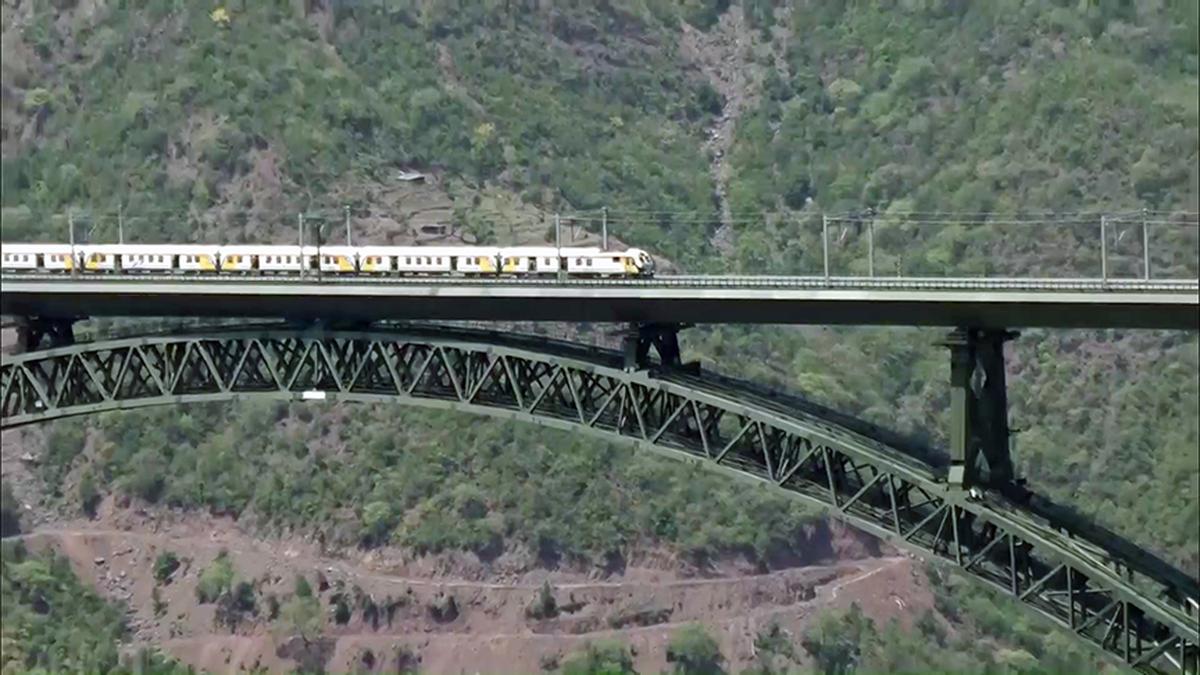
Amir Suhail Wani
On August 5, 2019, the government took a momentous step by revoking Article 370 of the Indian Constitution, which granted autonomous status to Jammu and Kashmir. This move was a watershed moment in the region’s history, aimed at integrating Jammu and Kashmir more fully into the Indian Union and fostering an era of peace, progress, and prosperity. In the years since the revocation, there has been a significant transformation in the region, signaling a shift towards stability and development.
Article 370, which had been in place since 1949, granted Jammu and Kashmir a special status, allowing it to have its constitution and considerable autonomy. However, this special status also created a sense of alienation from the rest of India and fostered political complexities.
The revocation of Article 370 aimed to eliminate these special privileges, ensuring that Jammu and Kashmir would follow the same laws and regulations as other Indian states. This step was intended to integrate the region more fully into the Indian political and administrative framework, promoting uniformity and equality under the law.
A Kashmiri woman rowing in the tranquil waters of Dal Lake
One of the significant impacts of the revocation has been the focus on economic development. Before 2019, the region faced numerous economic challenges, including limited infrastructure, insufficient investment, and high unemployment rates. The abrogation of Article 370 opened the door for a host of new economic initiatives.
The Indian government introduced a series of developmental projects aimed at modernizing infrastructure, such as building roads, improving connectivity, and enhancing public services. Significant investments have been made in sectors like tourism, education, and healthcare. For example, new educational institutions and healthcare facilities have been established, and existing ones have been upgraded. The focus on these areas is designed to improve the quality of life for residents and create new job opportunities.
Tourism has always been a vital part of Kashmir's economy, but the region’s potential has been hampered by ongoing conflict and instability. The revocation of Article 370 and the subsequent improvements in security and infrastructure have created a more favourable environment for tourism.
 A Kashmiri couple showing their finger mark after voting
A Kashmiri couple showing their finger mark after voting
The Indian government has launched several initiatives to promote Kashmir as a tourist destination. These include enhancing connectivity through improved air and road links, promoting cultural and heritage tourism, and developing new tourist attractions. Efforts have been made to ensure that visitors experience the beauty and culture of Kashmir in a safe and welcoming environment. This has helped revive the tourism sector, generating revenue and employment opportunities for local communities.
The revocation of Article 370 also aimed to foster greater social and political integration. The special status of Jammu and Kashmir had led to a complex administrative setup that sometimes resulted in delays and inefficiencies. By bringing Jammu and Kashmir under the same legal framework as other Indian states, the Indian government hoped to streamline administrative processes and enhance governance.
 Train on the Railway bridge over Chenab that will connect Kashmir to Kanyakumari
Train on the Railway bridge over Chenab that will connect Kashmir to Kanyakumari
Efforts have been made to engage with local communities and address their concerns through democratic processes. This includes strengthening local governance structures and ensuring that the voices of residents are heard in decision-making. The introduction of new political and administrative reforms has aimed to create a more inclusive and participatory governance model.
While the revocation of Article 370 has paved the way for numerous positive changes, it is important to acknowledge that challenges remain. The region continues to face issues related to security, political dissent, and socio-economic development. However, the Indian government has demonstrated a commitment to addressing these challenges through ongoing efforts to improve security, promote dialogue, and support development initiatives.
ALSO READ: How Mudasir Dar changed the terror-hub image of 5 Pulwama villages
Progress in Kashmir has been gradual, and it is essential to continue monitoring and addressing the needs of the region’s diverse population. Ensuring that development benefits all segments of society, including marginalized and vulnerable groups, will be crucial for sustaining long-term peace and prosperity.
